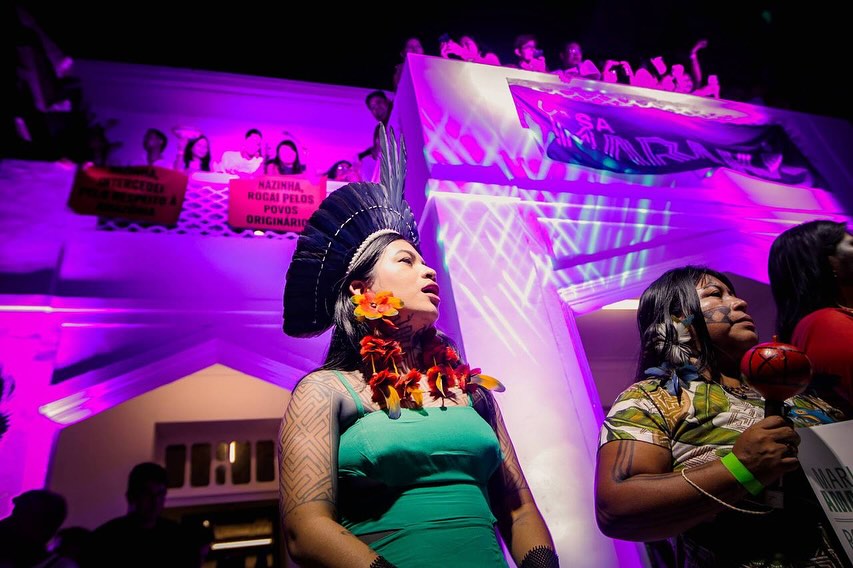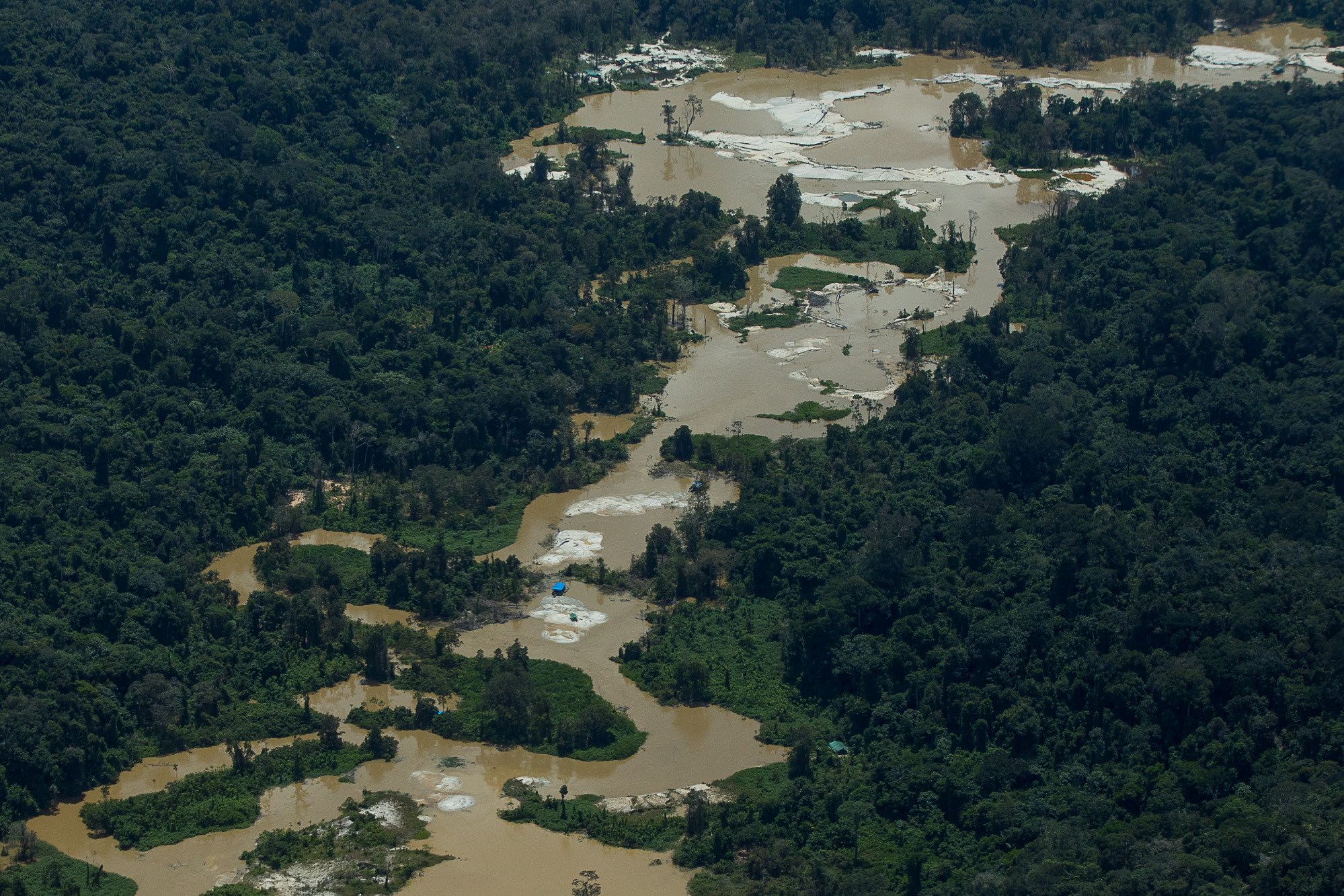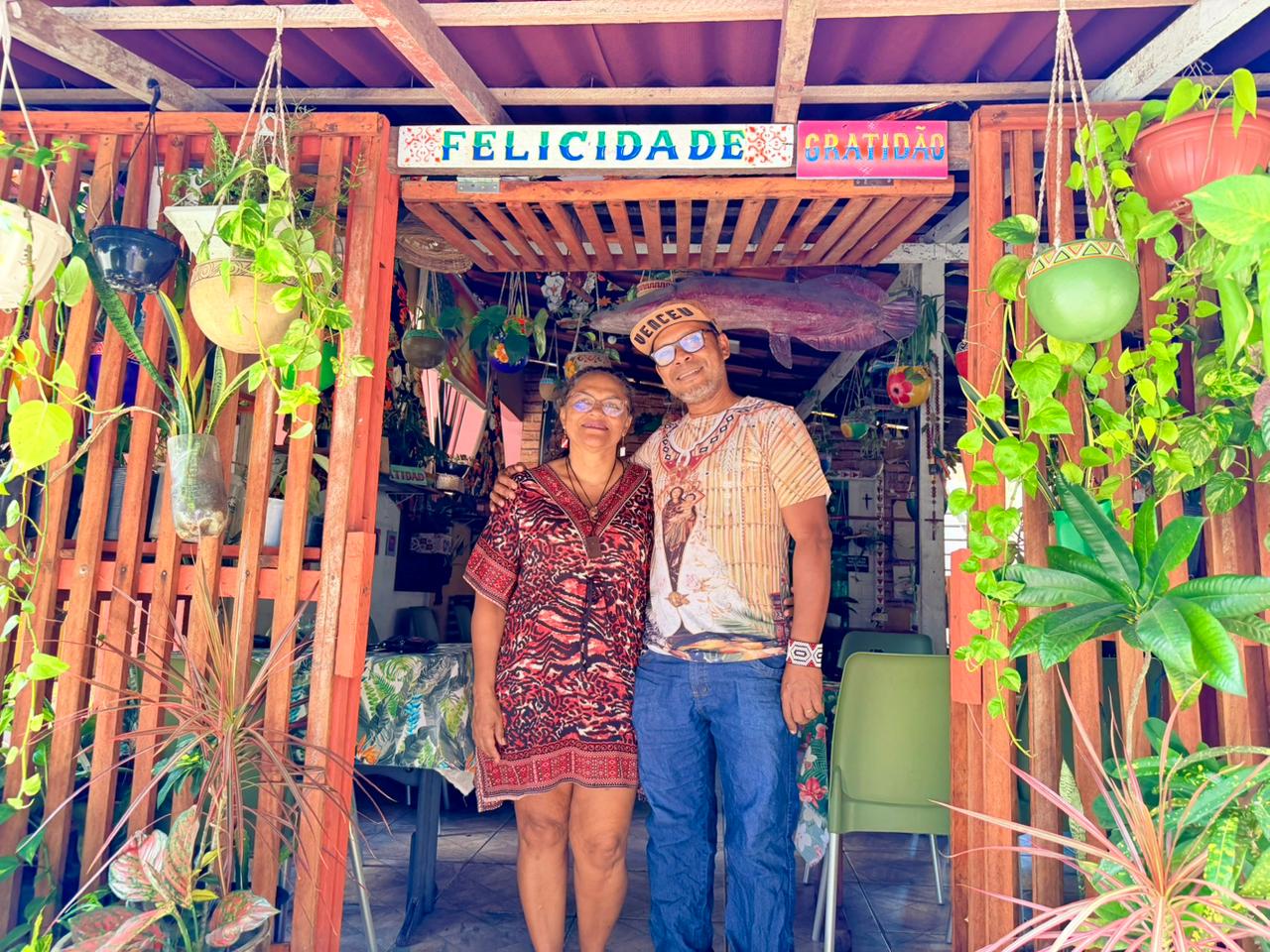
Beyond the Blue Zone: discover civil society spaces during COP30 in Belém
In the coming days, the capital of Pará will overflow with life and struggle
by Vinícius Kerhart, for the NINJA Collaborative Coverage at COP30
Thirty-three years after the RIO-92, also known as EC0-92, a United Nations event about the climate changing, returns to the Tupiniquim territories, and the world’s attention turns to Brazil one more time.
Between November 10 and 21, 2025, Belém will become the nation’s capital and the host city of the 30th Conference of the Parties (COP30).
The lenses of the mainstream media will be focused on the Blue Zone, where leaders and representatives from around the world will perform their diplomatic ballet. Meanwhile, the capital of Pará overflows with life and struggle on every side, so far beyond the official areas of the UN conference.
The “Cidade das Mangueiras” (City of Mango Trees) will become a global meeting point for those fighting to postpone the end of the world and to build a possible, sustainable future: the outcasts of civilization and globalization.
Indigenous people, riverside communities, quilombolas, traditional peoples, and activists from around the world will gather to discuss real and concrete actions in response the ecological emergency and environmental collapse.
These are the true protagonists who, together with civil society, are the only ones capable of preventing COP30 from becoming just another corporate greenwashing campaign. As has been happening in recent editions of the UN Climate Conference, where the climate issue is increasingly treated as a business.
In 2021, activist Greta Thunberg stated in a speech following a march through the streets of Glasgow: “It is no secret that COP26 is a failure. It should be obvious that we cannot solve a crisis with the same methods that got us into it in the first place.”
Empty political maneuvering that isn’t put into practice is being orchestrated by authorities behind closed doors, while the goals of the “Paris Agreement” seem increasingly unrealistic. And the planet moves rapidly toward the point of no return.
Meanwhile, collectivity and diversity take to the streets to discuss practical solutions and new ways of thinking the world. That brings at the heart of these discussions the active participation of those most vulnerable to the looming ecosocial catastrophe.
Far beyond the air-conditioned spaces of the Blue Zone, some of the most vibrant areas of political and civic action in Belém during COP30 will be:
People’s Summit
More than a remnant of Rio-92 and the United Nations Conference on Sustainable Development, Rio+20 — held in 2012, also in Rio de Janeiro — the People’s Summit represents the voice of civil society, traditional communities, and all those most affected by the environmental collapse who, unjustly, will not have a voice at COP30.
The summit will take place parallel to the official event, serving as a space for genuine dialogue and the pursuit of true climate and social justice, standing against the market’s false promises and the illusion of a so-called “green economy.”
Learn more
CASA NINJA AMAZÔNIA
The digital collective, widely recognized on the social medias and global civil society, has been mobilizing, months ahead of COP30, to build a permanent network of support for the Amazon.
The coordinators have been organizing a continuous program of discussion circles, workshops, meetings, gatherings, and campaigns aimed at resisting environmental setbacks while celebrating what the Amazon’s ecosystems already provide for forest peoples, such as the bioeconomy.
During COP30, the Casa Ninja Amazônia collaborative coverage will feature numerous events addressed by a team of skilled professionals with a critical and diverse perspective on the global climate crisis.
Stay up to date with the schedule
ESPAÇO CHICO MENDES
Organized by the Chico Mendes Committee, was founded after the assassination of the rubber tapper leader as a strategy to mobilize society, the space serves as a catalyst for solutions aimed at an environmentally balanced, economically prosperous, and socially just Amazon. It is a place for gatherings, knowledge exchange, immersive experiences, and celebrations of community leadership inspired by Chico’s legacy.
Stay up to date with the schedule
CASA DAS ONGS
The space is organized by the Brazilian Association of ONGs (Abong), created in 1991 to strengthen Brazilian Civil Society Organizations (OSCs) that working to defend and promote common rights.
The house will operate from November 10 to 12 and 16 to 19 as a democratic and collaborative space where civil society organizations will meet to build strategies and address urgent climate issues.
Abong will host panels, workshops, and other events aimed at further strengthening existing NGOs that work toward environmental preservation and sustainable coexistence between people and the forest, as well as guiding those interested in formalizing new organizations.
Stay up to date with the schedule:
FREEZONE CULTURAL
While global leaders negotiate solutions, the FreeZone Cultural Action emerges as a complementary space where society connects to the climate debate through culture. The climate emergency becomes an experience.
Music, debates, exhibitions, cinema, and gastronomy come together to make the climate dialogue accessible, inspiring, and human.
More information:
CASA SUL GLOBAL
An initiative of the networks Alianza Socioambiental Fondos del Sur and Rede Comuá, dedicated to influencing financial flows by turning funding into a tool for social and environmental justice for communities along the Global South.
Its first edition will take place during COP30, in partnership with the Network of Community Funds of the Brazilian Amazon and the Shift The Power movement.
More information:
CASA MARAKÁ
Casa Maraká is a platform created by the Indigenous Media network. Located in Belém do Pará, it is a space for culture, communication, and mobilization, conceived and headed by Indigenous communicators and artists.
The House emerges as a permanent meeting point to value art, ancestral knowledge, and the sustainability of Indigenous peoples.
More than a physical structure, Casa Maraká is a place of memory, voice, and dreams. It symbolizes ten years of Indigenous Media’s work and stands as a reference for Indigenous communication in Brazil and around the world.
More information:
CASA DOURADA
The permanent headquarters of the Psica Institute, the Casa Dourada will be inaugurated on the eve of COP30, located in a historic mansion in an old mansion of Belém, in the Cidade Velha district. The space can host up to 1,280 people and will feature continuous activities during the conference. It will function as a cultural and socio-environmental hub, offering exhibitions, talks on youth and climate justice, pocket shows, performances, Amazonian cuisine, and coworking for Pan-Amazonian organizations.
Joining COP30 through Casa NINJA Amazônia’s collaborative coverage.
Learn more about the schedule by clicking here.




